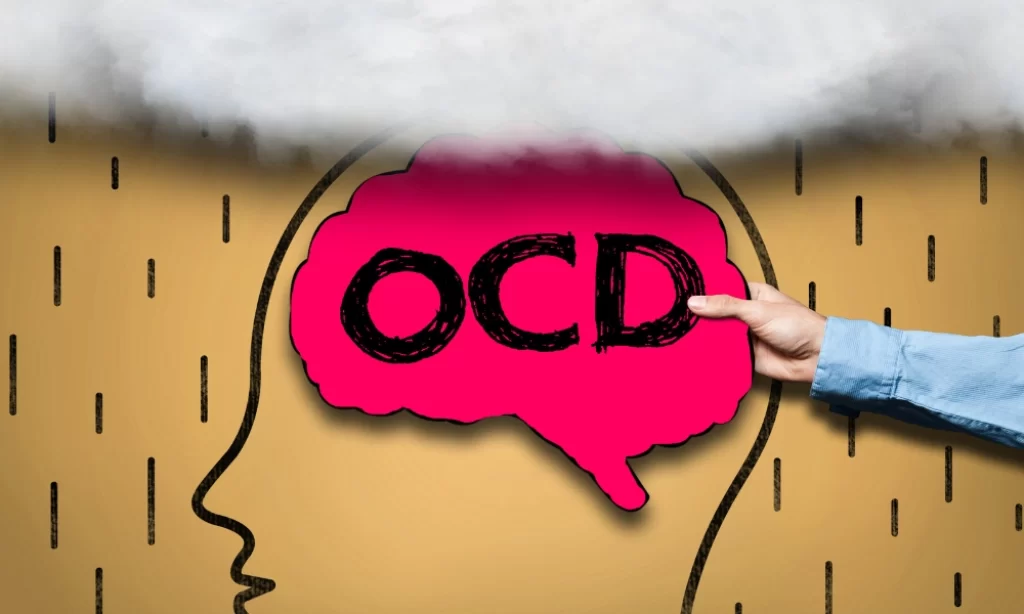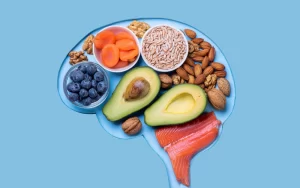Obsessive-Compulsive Disorder (OCD) is a mental health condition that affects millions of people worldwide. Despite its prevalence, there are numerous misconceptions surrounding OCD that can hinder understanding and support for those living with the disorder. In this blog, we will delve into the symptoms, types, myths, and facts about OCD, explore potential solutions, and conclude with a deeper understanding of this often misunderstood condition.

Symptoms
OCD is characterized by intrusive, unwanted thoughts (obsessions) and repetitive behaviors or mental acts (compulsions) aimed at reducing anxiety or preventing a feared event. Common obsessions include fears of contamination, harm to oneself or others, and a need for symmetry or order. Compulsions may manifest as repetitive rituals, checking, or mental acts like counting or praying.
Types of OCD
OCD is a heterogeneous disorder with various manifestations. Some common subtypes include:
Contamination OCD
Symptoms: Excessive fear of germs, dirt, or contaminants. Individuals with this subtype may avoid touching certain objects, people, or surfaces.
Compulsions: Excessive handwashing, avoiding public spaces, using gloves, or repeatedly cleaning personal items.
Harm OCD
Symptoms: Intrusive thoughts of causing harm to oneself or others, often accompanied by extreme anxiety and guilt.
Compulsions:
Mental rituals such as counting, praying, or seeking reassurance to alleviate the fear of causing harm.
Checking OCD
Symptoms: Constant fear of harming oneself or others due to negligence. Individuals may fear leaving appliances on, doors unlocked, or windows open.
Compulsions: Repeated checking of locks, appliances, or other items to ensure safety.
Symmetry/Order OCD
Symptoms: Intense need for things to be in a specific order or symmetrical. Discomfort or anxiety arises when things are perceived as disorganized.
Compulsions: Rearranging or organizing items until they feel “just right,” even if it interferes with daily activities.
Hoarding OCD
Symptoms: Persistent difficulty discarding possessions, regardless of their value. Living spaces become cluttered, making it challenging to navigate.
Compulsions: Accumulating and saving items, even those with no practical use, and feeling extreme distress at the thought of discarding them.
Pure Obsessional OCD (Pure O)
Symptoms: Intrusive, distressing thoughts without observable compulsions. Mental rituals, such as counting or repeating words silently, may be present.
Compulsions: Not outwardly visible but may involve intense mental rituals to neutralize distressing thoughts.
Just Right OCD
Symptoms: The need for things to feel “just right” or a sense of incompleteness until a specific action is performed.
Compulsions: Repeating actions until they feel satisfactory or engaging in rituals to achieve a sense of completeness.
Understanding these subtypes helps clarify the diversity of OCD presentations. It’s important to note that individuals may experience a combination of these subtypes, and the severity of symptoms can vary widely. Treatment plans are often tailored to address the specific challenges faced by each person, considering the unique features of their OCD subtype. Consulting with mental health professionals can provide comprehensive assessments and personalized interventions for effective management.

Myths and Facts
Myth: OCD is just about cleanliness.
Fact: While contamination fears are common, OCD encompasses a wide range of obsessions and compulsions.
Myth: Everyone has a little OCD.
Fact: Having preferences or being detail-oriented is not the same as experiencing the distressing obsessions and compulsions seen in OCD.
Myth: OCD is not a serious mental health condition.
Fact: OCD can significantly impact daily life, relationships, and overall well-being.
Myth: People with OCD can simply stop their compulsions if they want to.
Fact: Compulsions are driven by intense anxiety, and breaking the cycle often requires professional help.
Solutions
Cognitive-Behavioral Therapy (CBT): Exposure and Response Prevention (ERP) is a form of CBT specifically designed for OCD, helping individuals confront and manage their fears without resorting to compulsions.
Medication: Selective serotonin reuptake inhibitors (SSRIs) are commonly prescribed to alleviate OCD symptoms.
Neurofeedback: This therapeutic technique involves real-time monitoring of brain activity to teach individuals how to self-regulate their brain function. Neurofeedback has shown promise in helping individuals with OCD by targeting dysregulations in neural circuits associated with the disorder.
Transcranial Magnetic Stimulation (TMS): TMS is a non-invasive procedure that uses magnetic fields to stimulate nerve cells in the brain. In the context of OCD treatment, repetitive TMS has been explored as a potential intervention to modulate neural activity and reduce symptoms.
Mindfulness and Relaxation Techniques: Practices like mindfulness meditation can help individuals manage anxiety and break the cycle of obsessions and compulsions.

Support Groups: Connecting with others who share similar experiences can provide validation, understanding, and coping strategies.
Including Neurofeedback and Transcranial Magnetic Stimulation (TMS) in the array of solutions for OCD highlights the evolving landscape of mental health interventions. These approaches offer additional options for individuals seeking personalized and effective treatment strategies. As the field continues to advance, a combination of therapeutic modalities tailored to each individual’s needs may hold the key to more comprehensive and successful OCD management. It is essential to consult with mental health professionals to determine the most suitable approach based on individual circumstances and preferences.
Conclusion
Understanding OCD requires dispelling myths and embracing the complexity of this disorder. By recognizing the various symptoms and types, acknowledging the challenges individuals face, and promoting evidence-based solutions, we can foster a more compassionate and informed approach to supporting those living with OCD. It is crucial to encourage open conversations, reduce stigma, and promote access to mental health resources for a more inclusive and supportive society.
Elumind Centres for Brain Excellence is an integrated mental health centre offering solutions that can help you with your mental/brain health needs. To start your journey, book your FREE 15-MINUTE PHONE CONSULTATION. We are here for you.









